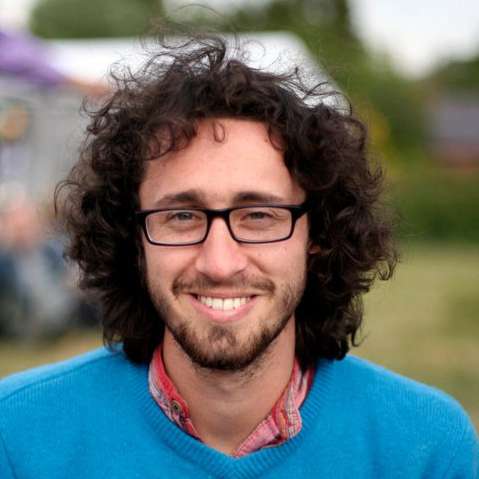Every now and then I like to experiment. Reviewing a concert in which I know none of the music can be frightening, but also exciting and – always – surprising. Thus I was slightly apprehensive but wholly enthusiastic about attending this LSO concert featuring works unknown to me by Bartók and Szymanowski. And after all, this music is not immediate, with show-stopping, crowd-pulling, radio-playing-in-the-background “listenability”. It requires effort, concentration, and a reason to listen; in other words, it requires a performance by a world-class orchestra, which is exactly what I got at the Barbican.
Bartók’s Music for Strings, Percussion and Celeste, a perfect testament to the composer’s ingenious compositional and orchestration techniques, opened the concert. With the orchestra’s strings repositioned to form two symmetrical ensembles either side of conductor Peter Eötvös, Bartók’s sinuous chromatic opening motive snaked its way across the stage from the violas outwards in a spooky fugue. Although deathly quiet, the strings created a heavy, oppressive atmosphere, hinting at lush post-Romantic harmonies but slithering constantly into discord effected by the slippery semitonal lines. A powerful, repetitive build-up heralded the entrance of the percussion section with a cymbal crash, in turn provoking a swooping chromatic descent, out of which arose that magical, mystical sound of the celeste, its clarity contrasting so strikingly with the nuances of the strings. The assertive opening of the second movement did little to assuage the foreboding atmosphere of the first, which was dissipated only in the more playful second section. However, this playfulness soon became frantic in an extraordinary offbeat, pizzicato block chord passage, which, although exciting, was hardly breathtaking; the players required such immense levels of concentration for those treacherous rhythms that the energy of the passage was predominantly soaked up by their furrowed brows.
Nonetheless, Bartók’s power and total originality were wholly communicated in this and the subsequent movement, a fantastically grotesque, twisted horror-movie score. Complete with persistent, high-pitched, arhythmic glockenspiel stabs, timpani portomenti and muted string trills, Bartók creates a ghastly soundscape in which musical images come to life. High-pitched violin portamenti sound like distant, ravenous birdcalls, and a unison lead violin and celeste duet evoke eerie, stratospheric flight. The Finale, a folksy romp in which a manic, infectious clashing melody subsides into sweeping string melodies, brought us crashing down to earth. After an excited cello solo, these broad brushstrokes return, extending to the entire ensemble, which then takes an abrupt, unexpected turn into the finish line. Bartók’s genius lies in his compositional intelligence, intricacy, cohesiveness and visceral excitement.
And yet, I struggled after the interval, when violinist Nikolaj Znaider joined the full orchestra to perform Bartók’s Violin Concerto no. 2. I found it a bizarre, disjointed and disorienting piece, in which Znaider had to struggle constantly against a rather detached orchestral score. The Dane did this admirably, navigating Bartók’s fiendish harmonic and rhythmic complexities assuredly, if never seeming completely comfortable. Equally, I sensed the orchestral players were getting through the notes worriedly, and it took all Eötvös’s musicality to keep the often opposing forces of distortedly lyrical violin and clamorous orchestra together. I don’t mean to sound critical, rather, confused by a performance that contrasted moments of intense atmosphere – the lonely violin searching over a pedal bass and haunted by an oboe countermelody; the fairylike soundworld of harp, celeste and chords in the high winds – with those of brashness bordering on farce – low trumpet trills, trombone flutters, reiterated timpani portamenti. Though the performers battled bravely, this Bartók baffled me, and, vitally, left me relatively unmoved.
Not for long. Szymanowski’s Symphony no. 3, “The Song of the Night”, a setting of a Polish translation of Sufi poet Jalal’ad-Din Rumi’s poem, was for me the biggest revelation of the night. Joined by the London Symphony Chorus and tenor Steve Davislim, the swollen orchestra performed this incredible paean to the universe with truly breathtaking breadth and depth of expression: musical, poetical and spiritual. Davislim’s magnificent tenor voice, echoed by a chanting chorus, invoked the poet’s mysterious and majestic night vision; leader Gordon Nikolitch’s passionate duets with a lone horn evoked the freshness of the night; celeste and high winds’ upward swoops painted a thousand stars in the night sky.
But it was the vastness of the music and the sheer volume of the sound in the tutti sections which plunged us into the poet’s overwhelming ecstasy. Bells rang, sopranos blared insanely high notes, the organ sounded, and the whole Barbican resonated with Szymanowski’s all-embracing musical organism. On listening to this music performed live, one experiences an entire universe of sound. For me, Szymanowski, Eötvös, Davislim, Nikolitch, and every chorus, orchestra, and audience member contributed to this most ecstatic poetic vision, perfectly translated into music.


